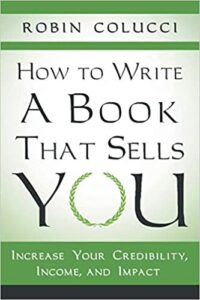
Specificity is the Mother of Credibility: How To Write a Believable Book
Here’s how to write in a way that people find both compelling and credible.
Your book will have to make a strong argument if it’s going to grow your business and balloon your income. And you can’t make a strong argument without compelling evidence.
Compelling is the operative word here.
When first starting out, many of my strategic book development and writing clients will present general statements as evidence. They’ll say things like, “Often times, these sorts of people have these sorts of things happen…”
And that tendency is understandable. As experts, the authenticity of their evidence is obvious to them. And abstract generalizations can seem like an effective way to communicate broad principles and big ideas.
But for non-experts — namely, most of your readers — generalizations won’t be compelling. In fact, abstract references to “evidence” can even strike some readers as suspicious. After all, people tend to speak in broader terms when they’re lying. For instance, which of these statements do you instinctively find more credible?
“I was home all afternoon.”
Or
“I got home at 12:45 pm, and I didn’t leave again until 5:05 pm.”
While people certainly can and do falsify specific claims, those claims are easier to disprove. So we intuitively consider specifics more credible.
What’s great is that this isn’t a hard problem to solve. You are an expert after all. You should have plenty of specific data and examples to present, or you can find them easily enough.
So instead of telling us about “types” of people and “sorts” of events, say, “John Doe came to me with this specific challenge. We devised this specific solution. Here were the measurable results.
I’ll take my own advice and give you a specific example…
In my own book, How To Write A Book That Sells YOU,
there’s a section where I reflect on the gap between the many people who want to write books and the few people who actually do.
In my first draft, I wrote something like this: “Most people think they’re going to write a book one day, but almost none of them ever do it.”
Then I sat with that language for a while.
I realized it sounded more like a platitude than a point. I imagined that someone reading that statement would tilt their head to one side, furrow their brow, and say something like, “Hm. Yeah. That sounds kind of true.”
Not the desired effect, right?
I needed a statement that would transform the obvious into the interesting —something that would get people to reflect on authorship in a new way.
I went online and did some research. I found an article that quoted a study on how many people say they’re going to write a book, and I checked sources that told me how many books are published each year, and I was able to extrapolate the data I needed to land on this formulation:
“Eighty percent of the population thinks they’re going to write a book one day, but less than one percent actually does so.”
That verifiable statement not only sounds more credible, it gives the reader more to think about. Authors are no longer unusual — they’re elite. Authors are in the ninety-ninth percentile. Suddenly, authorship is presented as an opportunity to stand out — to set themselves apart — to join the upper one percent.
And all of that value add came from just a little bit of research and specificity.
So do your research. Bring in third-party verified data as often as you can. And give examples from actual work that you’ve done with specific clients.
You’ll find that this little bit of added specificity goes a long way toward turning weak arguments into credible ones and turning experts into authorities.
And keep an eye out for next week’s article, where I’ll go into some more nitty-gritty depth about best practices for using third-party research and personal case studies.
So if you’d like to read more interesting articles and stay abreast of what we are doing, go like our R Colucci, LLC Facebook page. You can click here to learn more.
And if you’d like to go deeper, you can check out my book, How To Write A Book That Sells YOU.

